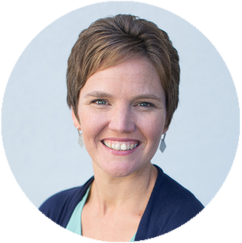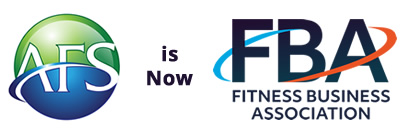 Sponsored by Fit for Profit
Sponsored by Fit for Profit
By Shannon Simmons, Special FBA Contributor
Many business owners joined the entrepreneurial ranks because they got tired of doing business based on someone else’s rules. As a fitness pro, you know there are so many ways to lose weight, gain muscle, resolve chronic issues, repair injuries, get faster, jump higher, you name it.
Some of these strategies work for some of your clients, but none of them will work for everyone. Our bodies are all different, making each workout plan or nutrition program as unique as the people they’re created for.
There’s also a plethora of ways to manage your money. Money doesn’t have the same biology as humans, so it’s easy to find the financial management and accounting principles that work. And, come on, the IRS isn’t quite as flexible as that yoga program can be.
Not by a long shot.
As a rule-breaking entrepreneur who wants the freedom and flexibility to handle their money in a way that feels good to you, having a budget feels restrictive. Kind of like that client who balks when she has to give up sugar entirely.
Restriction is difficult. There are rules to follow and that feels a lot like working for someone else again.
At the same time, it’s important to know what you’re spending in your business and when so you can keep a handle on your cash flow.
But when you have a spending plan, not a budget, you have that flexibility to do what you need in your business without having the restrictions of feeling like you “can’t” purchase what you need, when you need it.
Many of the reasons for business failure can be prevented with good financial planning, and that doesn’t necessarily mean having a budget. It’s about knowing what you’re going to spend and when, and having the freedom to make other purchases as needed.
Profit First helps with this, because it helps to create a safety net for your business and your life. A spending plan allows you to:
But when you have a spending plan, not a budget, you have that flexibility to do what you need in your business without having the restrictions of feeling like you “can’t” purchase what you need, when you need it.
- Control spending by seeing what’s available beyond your cash balance at the time.
- Curb impulse spending by avoiding spending on anything that is not planned for.
- Know how much you need and how to best schedule the loan payments if you need a loan to finance a large purchase
- Increase your chances of business success
- See future revenue shortfalls so that you can take proactive steps to boost sales
- Better manage growth
- Have a better idea of your profit level so you can make pricing changes, tax predictions, appropriate compensation, and other strategic changes
- Plan for large expenditures such as asset purchases and time them better for cash flow, loan acquisition, and other considerations
Getting started with a spending plan is easy. Here’s how, if you’re following Profit First principles:
- Identify your owner’s pay and effective tax rate.
- Identify your regular monthly revenue and subtract your owner’s pay and effective tax rate from that, as well as 5% profit.
- Add up your monthly expenses. Don’t forget anything you pay on an annual basis (simply divide the annual cost by 12). Transfer this amount to your OPEX account each month.
- If your monthly expenses are equal to or more than the result of #2, you now have your baseline for your spending plan.
- If your monthly expenses are more than the result of #2, it’s time to get creative at reducing your expenses or increasing your revenue. Whatever you do, do not reduce your owner’s pay, tax savings or profit allocation.
If you’ve been in business for more than a year, you can start with last year’s actual figures and then adjust for the growth and changes you want. Input these numbers into your accounting system so that you can get reports that measure actual progress versus the spending plan numbers. You can then make good business decisions based on your variances.
When you take a little bit of time to create a spending plan, you really can enjoy the freedom of knowing you’re on track to make your numbers. And freedom is the name of the game when you’re a business owner!
Shannon Simmons is a Certified Profit First Professional and Certified QuickBooks Pro Advisor, specializing in working with fitness and wellness businesses. Her practice, Fit For Profit, helps small business owners grow financially healthy and personally fulfilling businesses.


Join the Conversation!